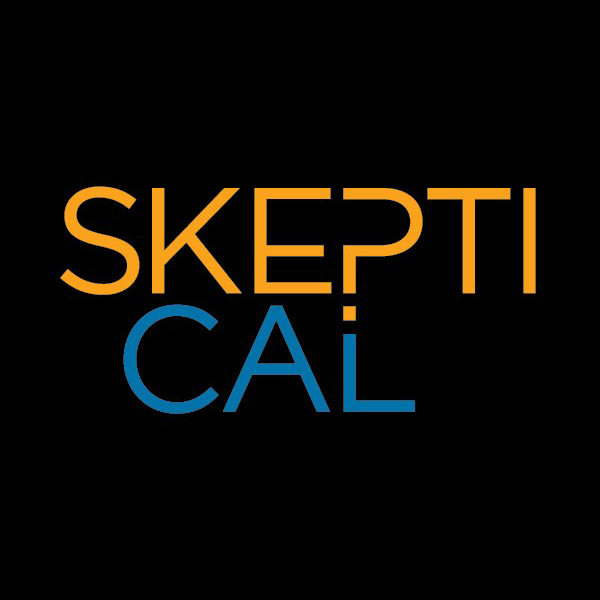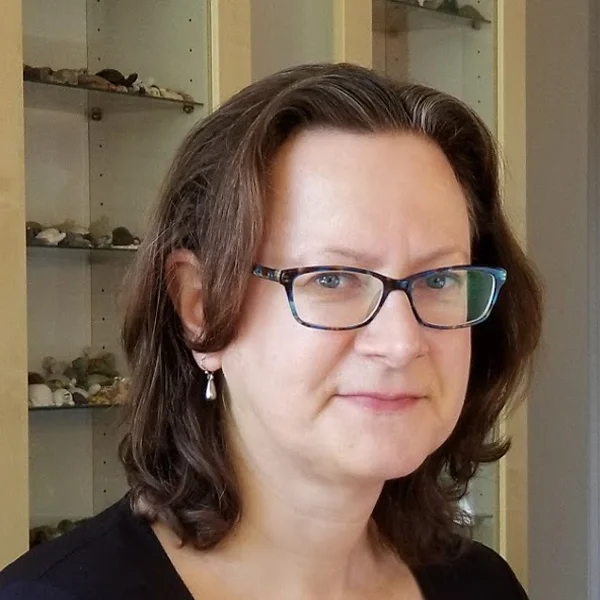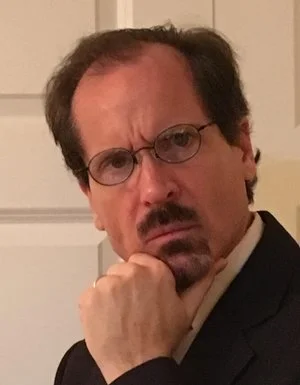SkeptiCal 2019 Speakers
This year our diverse topics span science frontiers, policy, and misuse to paranormal investigation and conspiracy theories...
Jim Underdown
Feet to the Fire:
Investigating Paranormal Claims
The Center for Inquiry Investigations Group (formerly the Independent Investigations Group) has been investigating and test paranormal claims for almost 20 years now. The CFIIG offers a quarter million dollars to anyone who can prove paranormal ability under controlled testing conditions, and has tested more claimants than anyone in the world over the last two decades. What have we learned from this experience, and how have investigations and testing evolved in the last 20 years?
To discuss this history is Jim Underdown, Executive Director of the Center for Inquiry West in Los Angeles. Jim is the Founder and Chair of the Center for Inquiry Investigations Group and with Kavin Senapathy, one of two co-hosts of CFI’s flagship podcast, Point of Inquiry. He has written for Skeptical Inquirer magazine, and advocated for science-based skepticism on numerous TV shows including National Geographic Explorer, Dr. Phil, Penn and Teller’s Bullshit, and Battle of the Psychics in Kiev, Ukraine, among many others. His column, Ask the Atheist, appears on the Center for Inquiry’s main website .
Lynn Rothschild
Is There a Universal Biology?
We search for the origins of life on Earth and the potential for life elsewhere, but what are we actually looking for? What is life? Is there only one way to construct a living organism, or are we Earthlings but one possibility out of a multitude?
Dr. Lynn Rothschild is a senior scientist at NASA’s Ames Research Center, as well as Adjunct Professor at Brown University in Molecular Biology, Cell Biology, and Biochemistry. Since 2011 she has been the faculty advisor of the award-winning Stanford-Brown iGEM team, which has pioneered the use of synthetic biology to accomplish NASA’s missions, focusing on the human settlement of Mars and on such innovative projects as using fungal mycelia as a building material. She is a fellow of the Linnean Society of London, The California Academy of Sciences and the Explorer’s Club. She was awarded the Isaac Asimov Award from the American Humanist Association, and the Horace Mann Award from Brown, and has been a NASA Innovative Advanced Concepts (NIAC) fellow three times.
Peter Gleick
The Beacon of Science in a Fact-Free Fog
Good scientific information on issues of critically important policy is vital if policymakers are to make informed thoughtful decisions. Yet we are faced today with an unprecedented threat to the collection, interpretation, and use of science in precisely those areas where good science is needed: national security, global environmental threats, and the protection of democratic institutions. Perhaps no issue better exemplifies today’s challenges than global climatic change, where the science is tremendously strong and clear and national and international policy is inadequate and weak. Why? Peter Gleick will explore this mismatch between what we know and what we’re doing about it in the context of the misuse and abuse of science, in the belief that knowledge and facts are the vaccines that can help inoculate us from the illnesses of ignorance and bad governance.
Dr. Peter Gleick is a scientist, innovator, and communicator on water and climate issues. In 1987 he co-founded the independent think-tank Pacific Institute, which he led as president until mid-2016, when he became president emeritus. Dr. Gleick received the prestigious MacArthur “genius” Fellowship and is an elected member of the U.S. National Academy of Sciences, a Fellow of the American Association for the Advancement of Science, winner of the Ven Te Chow Award from the International Water Resources Association, and the United States Water Prize from the US Water Alliance. In 2018 he received the Carl Sagan Prize for Science Popularization from Wonderfest. Dr. Gleick holds a B.S. in Engineering and Applied Sciences from Yale University and an M.S. and Ph.D. from the Energy and Resources Group of the University of California, Berkeley.
Mick West
Science Communication & Conspiracy Theorists
Why do some people believe in conspiracy theories? Is it because they don't understand science? Most people are not deeply science-literate, but they don't think the government blew up the World Trade Center. So what's going on? This talk looks at common misconceptions around seemingly simple scientific ideas like Newton's third law of motion, chemical compounds, and the refraction of light. We'll look at how these misconceptions are not unique to conspiracy theorists, yet still end up reinforcing their world-view. We'll discuss practical ways of communicating science to conspiracy theorists.
Mick West is the author of Escaping the Rabbit Hole: How to Debunk Conspiracy Theories using Facts, Logic, and Respect. He has been debunking extraordinary claims, alternative beliefs, and conspiracy theories for over a decade on his Metabunk.org forum and draws upon this experience in his book. Before he was a debunker he was a video game programmer and thinks debunking claims has much in common with debugging code.
Elisabeth Bik
Misconduct in Scientific Papers:
Plagiarism, Fabrication, and Falsification
Science builds upon science. Inaccuracies in scientific papers - either as the result of honest mistakes or intentional - can make other researchers follow the wrong leads. Research misconduct includes plagiarism, manipulation, or omitting data that does not fit a hypothesis. Here, I will present some examples of research misconduct, such as image duplication and manipulation in scientific papers, and predatory publishers, which publish research with little or no peer review. I will also discuss how science vigilantes, including myself, try to fight science misconduct by reporting flawed papers to journal editors, institutions, and on social media.
Dr. Elisabeth Bik received her PhD at Utrecht University in the Netherlands. She worked for 15 years in the School of Medicine at Stanford, where she studied the microbiomes of humans and marine animals. In May 2014, she founded Microbiome Digest, an almost daily compilation of scientific papers in the rapidly growing microbiome field. From 2016-2018, she worked at uBiome as a Science Editor, and later as the Scientific and Editorial Director. In 2018, she joined Astarte Medical as their Director of Science. In March 2019, she became a Microbiome and Science Integrity consultant. She can often be found discussing science papers on Twitter at @MicrobiomDigest, or searching the biomedical literature for inappropriately duplicated or manipulated photographic images and plagiarized text.
Glenn Branch
Flat Earth Rising?
When Charles K. Johnson, the president of the International Flat Earth Research Society, died in 2001, he seemed at the time to be the last apostle of his unusual creed. Eighteen years on, however, the flat earth is alive and well, especially on line. In his talk, Glenn Branch will sketch the history of the flat-earth movement, from its source in the ancient Near East through its coalescence in Victorian Britain to its modern rebirth on the Internet. Highlights include the identification of the author of the 1819 pamphlet that inspired the founder of the flat-earth movement and a critical discussion of a 2018 public opinion poll on the shape of the earth.
Glenn Branch is Deputy Director of the National Center for Science Education. He is the co-editor, with Eugenie C. Scott, of Not in Our Classrooms: Why Intelligent Design Is Wrong for Our Schools (2006), and the author or coauthor of numerous articles on creationism, evolution education, and climate change education in such publications as Scientific American, The American Biology Teacher, and Annual Review of Genomics and Human Genetics. He is a long-time student of pseudoscience of many types.
SkeptiCal 2019 Entertainment
We round out the day with entertainers leaning on science and skepticism.
Bill Patterson
Skepardy!
We had so much fun last year when Bill Patterson hosted Skepardy! at SkeptiCal that we invited him back to the stage for more skeptically-themed Jeopardy. Bill has been quizzing clever people for years, and for this event we'll have some special guests as contestants along with one lucky audience member.
Bill Patterson was a high school physics teacher for ten years, a Peace Corps volunteer and youth agency executive. He currently is a radiation therapist living in Sonoma County, California. He loves all things rational, and is a board member of BAS and a regular attendee at SkeptiCal.
Special Guests are Jim Underdown and Mick West. One lucky audience member will round out our players!
Joey Fabian
The Skeptic's Jukebox
Joey Fabian began his music career in Atlanta playing and recording with several prominent bands, some including members of the Atlanta Rhythm Section, Sea Level, and the Glenn Phillips Bands. Since arriving in the Bay Area in 1991, he has performed almost every conceivable genre of music from Blues to Bluegrass, Jam-Rock to Jazz, Soukous to Samba-Reggae.
Currently Joey plays bass with BMA nominated singer Paula Harris, guitar wiz Terry Hiatt as well as various sub gigs. He played with critically acclaimed fusion quartet The Bartron Tyler Group for many years, recording 3 albums with them. He has backed up recording star Alana Davis and guitar hero Will Ray of the Hellecasters.
Joey runs a small production studio in Mountain View called the Tomato Farm. There he produces music, a couple of podcasts, edits audio for a radio show and last year, his first film score/sound design; a short psych horror called “The Knock”.
"The Skeptic's Jukebox" is Joey's attempt to give something back to the skeptical community. Over the last several years he has performed at SkeptiCal, Sacramento Freethought Day, SF Library's "Darwin Day" and shared the stage with skeptical comedian Ian Harris. Songs of reason are a reason to sing! He will play songs by They Might Be Giants, Monty Python, George Hrab, Randy Newman, George Gershwin, Frank Zappa and more.








